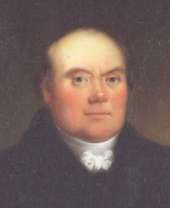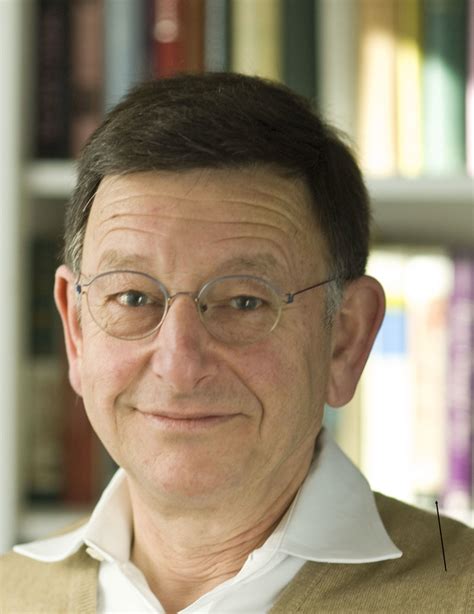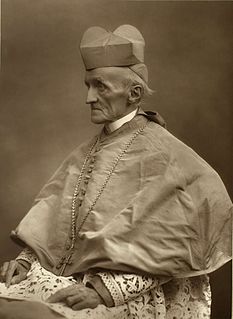Top 665 Rests Quotes & Sayings - Page 11
Explore popular Rests quotes.
Last updated on December 12, 2024.
Truth always rests with the minority, and the minority is always stronger than the majority, because the minority is generally formed by those who really have an opinion, while the strength of a majority is illusory, formed by the gangs who have no opinion - and who, therefore, in the next instant (when it is evident that the minority is the stronger) assume its opinion ... while Truth again reverts to a new minority.
[T]he next time you hear serious-sounding people explaining the need for fiscal austerity, try to parse their argument. Almost surely, you'll discover that what sounds like hardheaded realism actually rests on a foundation of fantasy, on the belief that invisible vigilantes will punish us if we're bad and the confidence fairy will reward us if we're good. And real-world policy - policy that will blight the lives of millions of working families - is being built on that foundation.
Our capacity to move forward as developing beings rests on a healthy relationship with the past. Psychotherapy, that widespread method for promoting mental health, relies heavily on memory and on the ability to retrieve and organize images and events from the personal pastIf we learn not only to tell our stories but to listen to what our stories tell us—to write the first draft and then return for the second draft—we are doing the work of memory.
Tao is obscured when men understand only one pair of opposites, or concentrate only on a partial aspect of being. Then clear expression also becomes muddled by mere wordplay, affirming this one aspect and denying all the rest. The pivot of Tao passes through the center where all affirmations and denials converge. He who grasps the pivot is at the still-point from which all movements and oppositions can be seen in their right relationship... Abandoning all thought of imposing a limit or taking sides, he rests in direct intuition.
How can we satisfy ourselves without going on in infinitum? And, after all, what satisfaction is there in that infinite progression? Let us remember the story of the Indian philosopher and his elephant. It was never more applicable than to the present subject. If the material world rests upon a similar ideal world, this ideal world must rest upon some other; and so on, without end. It were better, therefore, never to look beyond the present material world.
The soul seeks God with its whole being. Because it is desperate to be whole, the soul is God-smitten and God-crazy and God-obsessed. My mind may be obsessed with idols; my will may be enslaved to habits; my body may be consumed with appetites. But my soul will never find rest until it rests in God.
In the center of all rests the sun. For who would place this lamp of a very beautiful temple in another or better place that this wherefrom it can illuminate everything at the same time? As a matter of fact, not unhappily do some call it the lantern; others, the mind and still others, the pilot of the world. Trismegistus calls it a "visible God"; Sophocles' Electra, "that which gazes upon all things." And so the sun, as if resting on a kingly throne, governs the family of stars which wheel around.
He is my other eyes that can see above the clouds; my other ears that hear above the winds. He is the part of me that can reach out into the sea. He has told me a thousand times over that I am his reason for being; by the way he rests against my leg; by the way he thumps his tail at my smallest smile; by the way he shows his hurt when I leave without taking him. (I think it makes him sick with worry when he is not along to care for me.)
A considerable proportion of the developed world's prosperity rests on paying the lowest possible prices for the poor countries' primary products and on exporting high-cost capital and finished goods to those countries. Continuation of this kind of prosperity requires continuation of the relative gap between developed and underdeveloped countries - it means keeping poor people poor. Increasingly, the impoverished masses are understanding that the prosperity of the developed countries and of the privileged minorities in their own countries is founded on their poverty.
Christendom never came from an unbroken grave. It would have been buried in that grave, as Judas thought it was going to be, and as the Jews thought it was going to be, except there had been a resurrection from the dead. Then you can explain Christendom, churches, and literatures, if Christ rose again; but otherwise they cannot be explained at all. Our whole civilization rests on the broken Cross of the Master, and it is incredible that a civilization like this, in a world advancing steadily for eighteen centuries, has been founded on a lie.
What do you mean by praying that God will have mercy upon all men, and save them with an everlasting salvation, and then tell the congregation that God has done all He can to save them, and the matter rests with them, whether they will be saved or not?...if God has done all He can, why pray for Him do more? And if He has not done all He can, why tell the people He has?
Our freedom of choice in a competitive society rests on the fact that, if one person refuses to satisfy our wishes, we can turn to another. But if we face a monopolist we are at his absolute mercy. And an authority directing the whole economic system of the country would be the most powerful monopolist conceivable…it would have complete power to decide what we are to be given and on what terms. It would not only decide what commodities and services were to be available and in what quantities; it would be able to direct their distributions between persons to any degree it liked.
It's been my habit of mind, over these years, to understand that every situation in which human beings are involved can be turned on its head. Everything someone assures me to be true might not be. Every pillar of belief the world rests on may or may not be about to explode. Most things don't stay the way they are very long. Knowing this, however, has not made me cynical. Cynical means believing that good isn't possible; and I know for a fact that good is. I simply take nothing for granted and try to be ready for the change that's soon to come.
The most obvious and yet the oldest and most stubborn error on which the appeal of inflation rests is that of confusing ‘money’ with ‘wealth’…Real wealth, of course, consists in what is produced and consumed: the food we eat, the clothes we wear, the houses we live in. It is railways and roads and motor cars; ships and planes and factories; schools and churches and theaters; pianos, paintings and books. Yet so powerful is the verbal ambiguity that confuses money with wealth, that even those who at times recognize the confusion will slide back into it in the course of their reasoning.
Logic, too, also rests on assumptions that do not correspond to anything in the real world, e.g., on the assumption that there areequal things, that the same thing is identical at different points in time: but this science arose as a result of the opposite belief (that such things actually exist in the real world). And it is the same with mathematics, which would certainly never have arisen if it had been understood from the beginning that there is no such thing in nature as a perfectly straight line, a true circle, and absolute measure.
There comes a moment during which almost every girl or boy falls into melancholy; they are tormented by a vague inquietude which rests on everything and finds nothing to calm it. They seek solitude; they weep; the silence to be found in cloister attracts them: the image of peace that seems to reign in religious houses seduces them. They mistake the first manifestations of a developing sexual nature for the voice of God calling them to Himself; and it is precisely when nature is inciting them that they embrace a fashion of life contrary to nature's wish.
The scientist is not responsible for the laws of nature. It is his job to find out how these laws operate. It is the scientist's job to find the ways in which these laws can serve the human will. However, it is not the scientist's job to determine whether a hydrogen bomb should be constructed, whether it should be used, or how it should be used. This responsibility rests with the American people and with their chosen representatives.
An entertainment is something which distracts us or diverts us from the routine of daily life. It makes us for the time being forget our cares and worries; it interrupts our conscious thoughts and habits, rests our nerves and minds, though it may incidentally exhaust our bodies. Art, on the other hand, though it may divert us from the normal routine of our existence, causes us in some way or other to become conscious of that existence.
From my childhood it has been my conviction that men would reach the planets in my lifetime . . . this conviction . . . rests on two beliefs, one scientific and one political: (1) there are more things in heaven and earth than are dreamed of in our present-day science. And we shall only find out what they are if we go out and look for them. (2) it is in the long run essential to the growth of any new and high civilization that small groups of people can escape from their neighbors and from their governments, to go and live as they please in the wilderness.
Only love for the Supreme Lord is true Bhakti. Love for any other being, however great, is not Bhakti. The "Supreme Lord" here means Ishvara, the concept of which transcends what you in the West mean by the personal God. "He from whom this universe proceeds, in whom it rests, and to whom it returns, He is Ishvara, the Eternal, the Pure, the All-Merciful, the Almighty, the Ever-Free, the All-Knowing, the Teacher of all teachers, the Lord who of His own nature is inexpressible Love."
If I were to give a summary of the tendency of our times, I would say, Quantity. The multitude, the mass spirit, dominates everywhere, destroying quality. Our entire life--production, politics, and education--rests on quantity, on numbers. The worker who once took pride in the thoroughness and quality of his work, has been replaced by brainless, incompetent automatons, who turn out enormous quantities of things, valueless to themselves, and generally injurious to the rest of mankind. Thus quantity, instead of adding to life's comforts and peace, has merely increased man's burden.
It is clear, then, that the idea of a fixed method, or of a fixed theory of rationality, rests on too naive a view of man and his social surroundings. To those who look at the rich material provided by history, and who are not intent on impoverishing it in order to please their lower instincts, their craving for intellectual security in the form of clarity, precision, "objectivity," "truth," it will become clear that there is only one principle that can be defended under all circumstances and in all stages of human development. It is the principle: anything goes.
Not without design does God write the music of our lives. Be it ours to learn the time, and not be discouraged at the rests. If we say sadly to ourselves, "There is no music in a rest," let us not forget " there is the making of music in it." The making of music is often a slow and painful process in this life. How patiently God works to teach us! How long He waits for us to learn the lesson!
The hope for the twentieth century rests on recognition that war and depression are man-made, and needless. They can be avoided in the future by turning from the nineteenth-century characteristics just mentioned (materialism, selfishness, false values, hypocrisy, and secret vices) and going back to other characteristics that our Western Society has always regarded as virtues: generosity, compassion, cooperation, rationality, and foresight, and finding a increased role in human life for love, spirituality, charity, and self discipline.
Let us not forget that the value of this great system does not lie primarily in its extent or even in its efficiency. Its worth depends on the use that is made of it... For the first time in human history we have available to us the ability to communicate simultaneously with millions of our fellowmen, to furnish entertainment, instruction, widening vision of national problems and national events. An obligation rests on us to see that it is devoted to real service and to develop the material that is transmitted into that which is really worthwhile.
If you want to humble an empire it makes sense to maim its cathedrals. They are symbols of its faith, and when they crumple and burn, it tells us we are not so powerful and we can't be safe. The Twin Towers of the World Trade Center, planted at the base of Manhattan island with the Statue of Liberty as their sentry, and the Pentagon, a squat, concrete fort on the banks of the Potomac, are the sanctuaries of money and power that our enemies may imagine define us. But that assumes our faith rests on what we can buy and build, and that has never been America's true God.
I should be at peace. I have understood. Don't some say that peace comes when you understand? I have understood. I should be at peace. Who said that peace derives from the contemplation of order, order understood, enjoyed, realized without residuum, in joy and truimph, the end of effort? All is clear, limpid; the eye rests on the whole and on the parts and sees how the parts have conspired to make the whole; it perceives the center where the lymph flows, the breath, the root of the whys.
Without the suitable conditions life could not exist. But both life and its conditions set forth the operations of inscrutable Power. We know not its origin; we know not its end. And the presumption, if not the degradation, rests with those who place upon the throne of the universe a magnified image of themselves, and make its doings a mere colossal imitation of their own. Wonder was the motive that led people to philosophy ... wonder is a kind of desire in knowledge. It is the cause of delight because it carries with it the hope of discovery.
Every thought which enters the mind, every word we utter, every deed we perform, makes its impression upon the inmost fiber of our being and the result of these impressions is our character. The study of books, of music, or of the fine arts is not essential to a lofty character. It rests with the worker whether a rude piece of marble shall be squared into a horse-block or carved into an Apollo, a Psyche, or a Venus di Milo. It is yours, if you choose, to develop a spiritual form more beautiful than any of these, instinct with immortal life, refulgent with all the glory of character.
EDUCATION, n. The bringing up, as of a child; instruction; formation of manners. Education comprehends all that series of instruction and discipline which is intended to enlighten the understanding, correct the temper, and form the manners and habits of youth, and fit them for usefulness in their future stations. To give children a good education in manners, arts and science, is important; to give them a religious education is indispensable; and an immense responsibility rests on parents and guardians who neglect these duties.
[Mr. Gifford] made it much his business to deliver the people of God from all those false and unsound rests that by nature we are prone to make and take to our souls. He pressed us to take special heed that we took not up any truth upon trust - as from this or that, or any other man or men - but to cry mightily to God that He would convince us of the reality thereof, and set us down therein by his own Spirit in the holy word.
There is one view of the subject which ought to have its influence on those who espouse doctrines which strike at the authoritative origin and efficacious operation of the Government of the United States. The Government of the U.S. like all Governments free in their principles, rests on compact; a compact, not between the Government & the parties who formed & live under it; but among the parties themselves, and the strongest of Governments are those in which the compacts were most fairly formed and most faithfully executed.
Men have always been a prey to distractions, which arethe original sins of the mind; but never before today has an attempt been made to organize and exploit distractions, to make of them, because of their economic importance, the core and vital center of human life, to idealize them as the highest manifestations of mental activity. Ours is an age of systematized irrelevances, and the imbecile within us has become one of the Titans, upon whose shoulders rests the weight of the social and economic system
The practice of translation rests on two presuppositions. The first is that we are all different: we speak different tongues, and see the world in ways that are deeply influenced by the particular features of the tongue that we speak. The second is that we are all the same - that we can share the same broad and narrow kinds of feelings, information, understandings, and so forth. Without both of these suppositions, translation could not exist. Nor could anything we would like to call social life. Translation is another name for the human condition.
A man's knowledge may be said to be mature, in other words, when it has reached the most complete state of perfection to which he, as an individual, is capable of bringing it, when an exact correspondence is established between the whole of his abstract ideas and the things he has actually perceived for himself. His will mean that each of his abstract ideas rests, directly or indirectly, upon a basis of observation, which alone endows it with any real value; and also that he is able to place every observation he makes under the right abstract idea which belongs to it.
Sociological method as we practice it rests wholly on the basic principle that social facts must be studied as things, that is, as realities external to the individual. There is no principle for which we have received more criticism; but none is more fundamental. Indubitably for sociology to be possible, it must above all have an object all its own. It must take cognizance of a reality which is not in the domain of other sciences... there can be no sociology unless societies exist, and that societies cannot exist if there are only individuals.
When despair for the world grows in me and I wake in the night at the least sound in fear of what my life and my children's lives may be, I go and lie down where the wood drake rests in his beauty on the water, and the great heron feeds. I come into the peace of wild things who do not tax their lives with forethought of grief. I come into the presence of still water. And I feel above me the day-blind stars waiting with their light. For a time I rest in the grace of the world, and am free.
But what I would like to say is that the spiritual life is a life in which you gradually learn to listen to a voice that says something else, that says, "You are the beloved and on you my favour rests."... I want you to hear that voice. It is not a very loud voice because it is an intimate voice. It comes from a very deep place. It is soft and gentle. I want you to gradually hear that voice. We both have to hear that voice and to claim for ourselves that that voice speaks the truth, our truth. It tells us who we are.
Trust is perhaps the most critical single building block underlying effectiveness. Without trust leaders do not have followers. Without trust, leaders are impotent despite great rhetoric or splendid ideas. Trust rests on the belief among followers that the leader is transparent: What you see is what there is. Trust means followers believe there is no duplicity; no manipulation just to satisfy the leader's ego. Very simply: The effective leader is transparent; that's why that person is trusted.
Jurors have found, again and again, and at critical moments, according to what is their sense of the rational and just. If their sense of justice has gone one way, and the case another, they have found "against the evidence," ... the English common law rests upon a bargain between the Law and the people: The jury box is where the people come into the court: The judge watches them and the people watch back. A jury is the place where the bargain is struck. The jury attends in judgment, not only upon the accused, but also upon the justice and the humanity of the Law.
So rests the sky against the earth. The dark still tarn in the lap of the forest. As a husband embraces his wife's body in faithful tenderness, so the bare ground and trees are embraced by the still, high, light of the morning. I feel an ache of longing to share in this embrace, to be united and absorbed. A longing like carnal desire, but directed towards earth, water, sky, and returned by the whispers of the trees, the fragrance of the soil, the caresses of the wind, the embrace of water and light. Content? No, no, no - but refreshed, rested - while waiting.
To have Christian hope means to know about evil and yet to go to meet the future with confidence. The core of faith rests upon accepting being loved by God, and therefore to believe is to say Yes, not only to him, but to creation, to creatures, above all, to men, to try to see the image of God in each person and thereby to become a lover. That's not easy, but the basic Yes, the conviction that God has created men, that he stands behind them, that they aren't simply negative, gives love a reference point that enables it to ground hope on the basis of faith.
The pleasures of love are for those who are hopelessly addicted to another living creature. The reasons for such addiction are so many that I suspect they are never the same in any two cases. It includes passion but does not survive by passion; it has its whiffs of the agreeable vertigo of young love, but it is stable more often than dizzy; it is a growing, changing thing, and it is tactful enough to give the addicted parties occasional rests from strong and exhausting feeling of any kind.
Since my moral system rests on my accepted version of the facts, he who denies my moral judgments or my version of the facts, is to me perverse, alien, dangerous. How shall I account for him? The opponent has always to be explained, and the last explanation that we ever look for is that he sees a different set of facts. Such an explanation we avoid, because it saps the very foundation of our own assurance that we have seen life steadily and seen it whole.
Four sits down on the edge of the carousel, leaning against a plastic horse's foot. His eyes lift to the sky, where there are no stars, only a round moon peking through a thin layer of clouds. The muscles in his arms are relaxed; his hand rests on the back of his neck. He looks almost comfortable, holding that gun to his shoulder. I close my eyes briefly. Why does he distract me so easily? I need to focus.
The whole world population rests on women. You have to start with the woman. And the woman will make her own decisions. If you want to have five or ten children, fine. You can have big families or small families, but you have the family you feel you can afford or feed. In China the one - child policy is already finished - on its way out because the economic conditions end up producing the same effect. If people want an expensive flat in a place like Shanghai, you can't have more than one child or two.
There is a great difference, then, between "power" and "authority." Power refers to one's ability to coerce others (through physical, economic, or other means) to do one's bidding. One can possess the means of power: physical strength, armaments, and money. But authority must be performed. Authority refers to one's ability to gain the trust and willing obedience of others. While power rests on intimidation, authority survives through inspiration.
Faith, Hope & Love. Faith is directed towards God, love towards others (both within the Christian fellowship and beyond it) and hope towards the future, in particular, the glorious coming of our Lord Jesus Christ. Similarly, faith rests of the past; love works in the present; hope looks to the future. Every Christian without exception is a believer, a lover and a hoper. Faith, hope and love are three sure evidences of regeneration by the Holy Spirit.
She hugs me. It's tentative at first, a little scared, and yes, a little repulsed, but then she melts into it. She rests her head against my cold neck and embraces me. Unable to believer what's happening, I put my arm around her and just hold her. I almost swear I can feel my heart thumping. But it must just be hers, pressed tightly against my chest.
There's a story... a legend, about a bird that sings just once in its life. From the moment it leaves its nest, it searches for a thorn tree... and never rests until it's found one. And then it sings... more sweetly than any other creature on the face of the earth. And singing, it impales itself on the longest, sharpest thorn. But, as it dies, it rises above its own agony, to outsing the lark and the nightingale. The thorn bird pays its life for just one song, but the whole world stills to listen, and God in his heaven smiles.
It is an absolutely vain endeavor to attempt to reconstruct or even comprehend the nature of a human being by simply knowing the forces which have acted upon him. However deeply we should like to penetrate, however close we seem to be drawing to truth, one unknown quantity eludes us: man's primordial energy, his original self, that personality which was given him with the gift of life itself. On it rests man's true freedom; it alone determines his real character.
Our entire case as members of The Church of Jesus Christ of Latter-day Saints rests on the validity of this glorious First Vision. ... Nothing on which we base our doctrine, nothing we teach, nothing we live by is of greater importance than this initial declaration. I submit that if Joseph Smith talked with God the Father and His Beloved Son, then all else of which he spoke is true. This is the hinge on which turns the gate that leads to the path of salvation and eternal life.
... in spite of being happier than I ever dreamed I could be, I'm also soberer. The fear that something may happen to you rests like a shadow on my heart. Always before I could be frivolous and carefree and unconcerned, because I had nothing precious to lose. But now -- I shall have a Great Big Worry all the rest of my life. Whenever you are away from me I shall be thinking of all the automobiles that can run over you, or the signboards that can fall on your head or the dreadful, squirmy germs that you may be swallowing.
The argument culture urges us to approach the world - and the people in it - in an adversarial frame of mind. It rests on the assumption that opposition is the best way to get anything done: The best way to discuss an idea is to set up a debate; the best way to cover news is to find spokespeople who express the most extreme, polarized views and present them as 'both sides'; the best way to settle disputes is litigation that pits one party against the other; the best way to begin an essay is to attack someone; and the best way to show you're really thinking is to criticize.
White and shining virgin of all human virtues, ark of the covenant between earth and heaven, tender and strong companion partaking of the lion and of the lamb, Prayer! Prayer will give you the key of heaven! Bold and pure as innocence, strong, like all that is single and simple, this glorious, invincible Queen rests, nevertheless, on the material world; she takes possession of it; like the sun, she clasps it in a circle of light.
In view of the importance of philanthropy in our society, it is surprising that so little attention has been given to it by economic or social theorists. In economic theory, especially, the subject is almost completely ignored. This is not, I think, because economists regard mankind as basically selfish or even because economic man is supposed to act only in his self-interest; it is rather because economics has essentially grown up around the phenomenon of exchange and its theoretical structure rests heavily on this process.
With reference to the narrative of events, far from permitting myself to derive it from the first source that came to hand, I did not even trust my own impressions, but it rests partly on what I saw myself, partly on what others saw for me, the accuracy of the report always being tried by the most severe and detailed tests possible. My conclusions have cost me some labour from the want of coincidence between accounts of the same occurrences by different eye-witnesses, arising sometimes from imperfect memory, sometimes from undue partiality for one side or the other.
Civilization - and by this I do not mean talking cinemas and tinned food, nor even surgery and hygienic houses, but the whole moral and artistic organization of Europe - has not in itself the power of survival. It came into being through Christianity, and without it has no significance or power to command allegiance ... It is no longer possible, as it was in the time of Gibbon, to accept the benefits of civilization and at the same time deny the supernatural basis on which it rests ... Christianity ... is in greater need of combative strength than it has been for centuries.
But the appeal to antiquity is both a treason and a heresy. It is a treason because it rejects the Divine voice of the Church at this hour, and a heresy because it denies that voice to be Divine. How can we know what antiquity was except through the Church? ... I may say in strict truth that the Church has no antiquity. It rests upon its own supernatural and perpetual consciousness. ... The only Divine evidence to us of what was primitive is the witness and voice of the Church at this hour.



























































